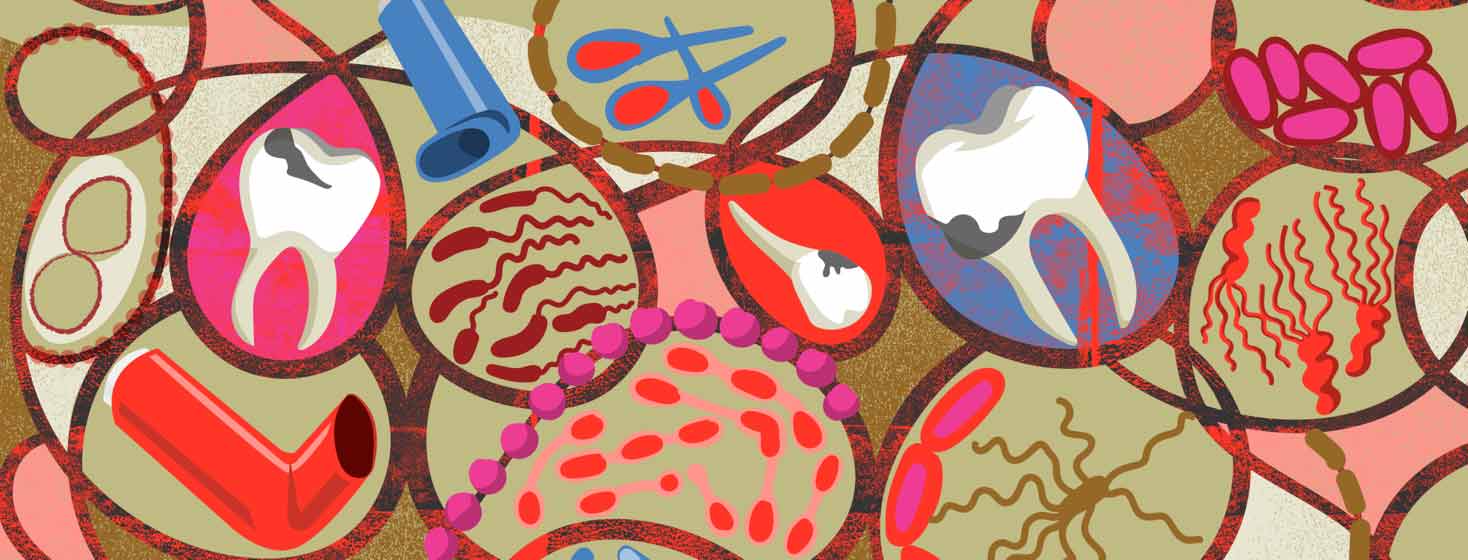Asthma Inhalers and Dental Health
If you were asked to make a list of the people on your asthma healthcare team, it might include your family doctor, pulmonologist, respiratory therapist, and the nurses you regularly see. If your asthma is not well controlled, your list may even include your emergency room doctor.
While all of these people play an important role in your asthma care, there is another provider you should include on your list: your dentist.
Asthma and the inhalers and nebulizers you use to control your asthma can affect your oral health. It is important to understand how your mouth may be affected by your asthma medicines and what issues to look for. This can help you know when to seek dental care with any concerning symptoms.
Dry mouth
The saliva that keeps your mouth moist helps your body remove food and bacteria from your mouth. It also maintains the pH balance in your mouth. However, both asthma and asthma treatments like inhalers and nebulizers can cause your mouth to dry out.1-3
Dry mouth can lead to many other oral and dental problems, such as bad breath, tooth decay, and mouth sores. It can also cause dentures and partials to not fit as well as they should.1-3
Cavities
Unfortunately, dry mouth can also cause cavities. When there is not enough saliva to carry away food and bacteria, it can get stuck in between your teeth and cause decay. Your mouth also becomes more acidic when it is dry. This acidic environment breaks down the enamel of the teeth and can contribute to cavities. Some inhalers also can make your mouth more acidic.1-3
Infections
Inhalers and nebulizers can lead to an increased chance of a yeast infection in your mouth. This infection is known as thrush. Thrush usually causes a white film in the mouth and on the tongue. It often tastes and smells bad. Thrush can cause white ulcers called plaques on the tongue. If you get thrush, you should see your doctor or dentist right away. You will need an antifungal medicine to get rid of it.1
Gum disease
Research shows that inhalers and nebulizers can be a factor in gum disease in people with asthma. Doctors have found that both adults and children with asthma have more gum disease than people who do not.1-3
Some doctors think certain inhalers can cause more plaque around the gum line, which can lead to gum disease. Other doctors think gum disease may be a response your immune system has to the inhalers. Dry mouth can also make gum disease worse.1-3
What can I do to prevent oral health problems?
There are things people with asthma can do to prevent oral health issues:2
- Staying hydrated is very important. Make sure you drink lots of water to combat dry mouth. You may also want to try mouth rinses that are specially designed to treat dry mouth.
- Pay attention to your oral hygiene. Brush your teeth twice a day and floss every day. Make sure you are also getting regular cleanings and checkups with your dentist.
- Rinse your mouth after using your inhaler or nebulizer. This will help remove any medicine residue in your mouth and help keep your mouth healthy. Bonus points if you can brush your teeth after using your inhaler or nebulizer.
Be sure to tell your dentist that you have asthma and what medicines you take to treat it. Your dentist may offer other suggestions on how to prevent oral health issues.
You may also want to talk to your doctor about changing your inhaler or nebulizer if you notice you have oral and dental health issues. Some inhalers and nebulized drugs are known to cause more oral and dental health issues. Some even have sugar in them to mask the taste of the medicines, which can also lead to dental issues.
There are strategies to help deal with oral health issues. Your asthma care team – including your dentist – wants you to have the least amount of side effects possible, so be sure to tell them if you are having any issues.

Join the conversation